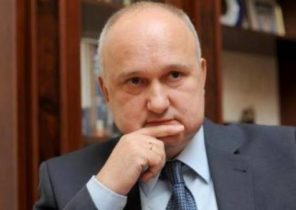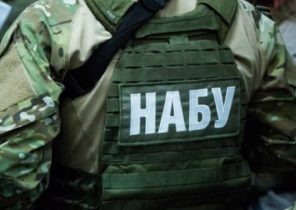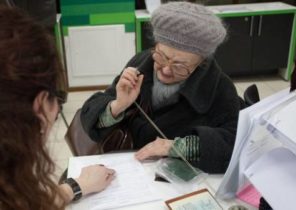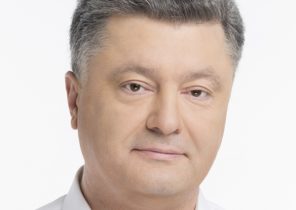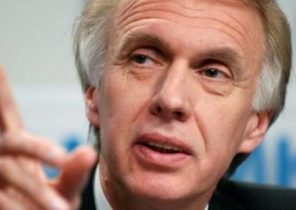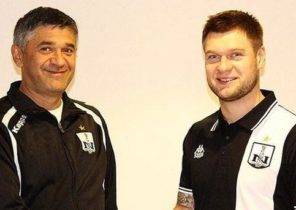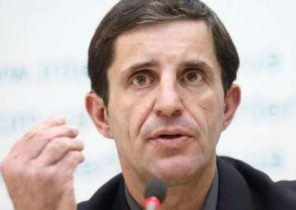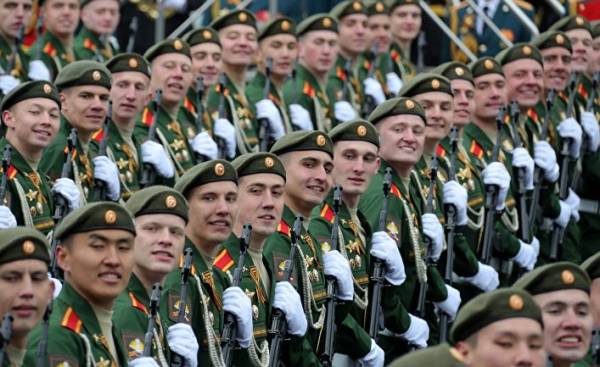
In the US, culture and art thrive, but we, apparently, have lost the art to lose with dignity. Instead, we are desperate to find scapegoats on which to blame for an unexpected and embarrassing defeat. Instead of focusing on assumptions about the intervention of foreign States in American elections, political leaders of Washington, you may want to try to make some conclusions from the changes and recent events in Russia after 100 years after the revolution that put an end to the tsarist regime and brought the Communists to power in the country. Us officials responsible for foreign policy, it would be useful to reflect on the nature of the Russian revolutions of 1917, as well as on the changes that have occurred since then.
May 9, 2017 on red square in Moscow held a large military parade, in which participated 10 thousand military, including women’s battalions in various forms. In this parade were also involved 114 pieces of military equipment, including anti-aircraft missiles of medium and long range Intercontinental ballistic missiles and battle tanks.
The parade was attended by President of Russia Vladimir Putin and Prime Minister Dmitry Medvedev. Putin attended the parade and showed a photo of his father in uniform. This event is remarkable in two senses. The parade was timed to celebrate the 72-year anniversary of the defeat and surrender of Nazi Germany on may 9 1945 and was the occasion to demonstrate Russia’s military might.
But this parade was designed to pay tribute to and memory 26 million soldiers and civilians who died in the great Patriotic war, and also had a political significance. Victory parades were held all over Russia, but the parade on red square was of key importance. In essence, this parade has replaced the celebration of anniversaries of the revolutions of 1917. In 1917 there were two revolutions. In February (at the beginning of March, new style) popular uprising, which was attended by the workers and soldiers, led to the fact that the king abdicated. In October (early November) a small group of Bolsheviks headed by Vladimir Lenin overthrew the provisional government and seized power.
In his speech after the parade, Putin emphasized Russia’s military might, which in 2016 spent on your army 69 billion dollars. Putin directly said about the power of Russia and what is much more important for American politicians, he called on the international community to stand up for the fight against terrorism. The President of Russia said, “Russia’s Armed forces are able to repel any potential aggression… But for an effective fight against terrorism, extremism, neo-Nazism, other threats need to consolidate the whole international community. We are open for such cooperation. Russia will always be on the side of the forces of the world, those who chooses the path of equal partnership, who reject war as contrary to the very essence of life and human nature”.
It is important that this celebration of Russia’s military might and its ability to stand up for themselves, in essence, replaced the anniversaries of the 1917 revolution, especially the October revolution. We all know that predicting the future is extremely difficult — if not impossible-to do it. But several generations of Russians faced with the fact that predicting the past is not only difficult, but dangerous, although people still keep the memory of past events and people, according to the results of the recent survey of public opinion, maintained a positive attitude to Lenin and his role in history. However, as he wrote Virginia Woolf in her novel “Orlando”, “Sasha was born in Russia… where the phrase often remains incomplete because of the doubt of the speaker in how to be her best round”. It so often happens in the Russian political sphere.
To give simple answers to complex questions is quite risky, however, if not considered staunch supporters of Stalinism, few Russians are ready to celebrate the anniversary of the revolution of 25 October 1917, a military mutiny and a coup under the leadership of Lenin and his Bolsheviks, who abolished the Republic, established in February 1917 and established a dictatorship, and then by the totalitarian regime, which was finally fixed by Stalin.
The celebration of the anniversary of the October revolution, which began with a speech of Lenin’s in Moscow November 7, 1918, became the main holiday of the year, the reason for the greatness of Lenin, the opportunity for revolutionary propaganda, to memories of the heroes of the revolution and calls for the world “proletarian” revolution. In 1996 November 7, turned into the Day of accord and reconciliation. Putin’s speech on 9 may 2017 was devoted not call for revolution, and the Russian people’s victory in the war against Nazism.
Someone can say that the true meaning of the October revolution and the victory of the Bolsheviks in the civil war lay in the fact that these events prevented the transformation of Russia into a democratic system on a Western model, becoming an extension of gradual changes in Russian policy after the liberation of the serfs in 1861, the creation of the Duma in 1905 and the abdication of Tsar Nicholas II abdicated the throne on 2 March 1917 and the establishment of the Petrograd Soviet on 27 February 1917.
After the February revolution, attempts to introduce elements of democratic freedoms — the Soviets, factory committees and different ways to Express people’s opinion — was strangled by the Bolshevik dictatorship, which was not “the dictatorship of the proletariat”, as urged by Lenin and the dictatorship and violence of a tiny group of Bolsheviks, physical liquidation and persecution of people, parties, and publications that have expressed their disagreement with the Governor, and the beginning of state terror.
Until the coming to power of such leaders as Mikhail Gorbachev and Boris Yeltsin, no one has made a real attempt to change the system, to introduce Western political concepts and to formally abandon the ideas of Marxism and calls for world domination of communism. Under Putin, Russia has developed a rather complex and bizarre system, which includes developing, but still fairly weak capitalist economy, limited political freedom, the authoritarian regime, the growing influence of the Russian Orthodox Church, the presence of a weak Communist party, the lack of formal monuments to Stalin and a growing middle class. The main goal of President Putin is stability, not revolutionary uprising around the world. Victory day in Russia today is first and foremost a celebration of patriotism and revolutionary spirit, the celebration, the center of which are political and military power of the state.
Despite all the accusations of Russian interference in the elections in the West, Putin has clearly outlined its position: the independent control of the course of Russia, the powerful influence of Russia on the international arena and cooperation with the United States in the struggle against an imaginary, against a real threat — international terrorism. Washington, particularly the Congress, should seek opportunities for such cooperation and stop to pose for the cameras.
